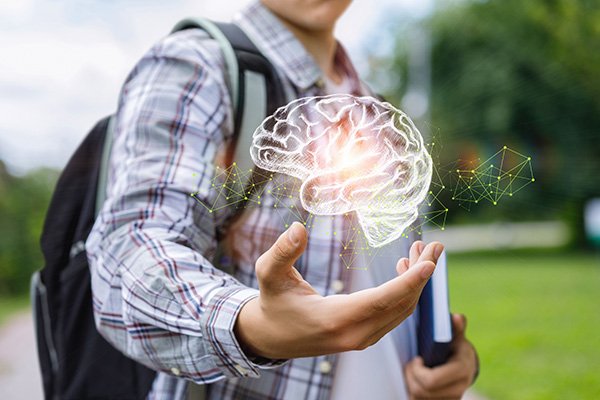Teen Brains Are Actually Different, Here’s How
The teen years.
You are warned about these years by family and friends before you even have children.
Your sweet, gentle, baby is officially a teenager.
The teenage years bring on a lot of changes, internally and externally for your teen and your family.
The mood swings. The constant battles. They do not seem to want to spend any time with you anymore. Their school work may be suffering.
Are they hanging out with the wrong crowd? Why are they dressing like that? Did you buy that shirt for them? Is that outfit even allowed in school?
Some of the choices they are making may even have you questioning your own parenting.
Where did the time go? Where did your baby go?
Do not be so quick to blame yourself just yet.
The truth is: Teenage brains are actually different. Here’s how.
Teenage Brains are Not Fully Developed Yet.
Teenage brains are constantly learning, growing, and absorbing the world around them. A teenage brain does not fully develop until the teen reaches their mid-twenties.
Let’s go over some of the different parts of the brain and their role in teen brain development.
The Prefrontal Cortex
The development of brains happens in a back-to-front pattern. This means that the prefrontal cortex is one of the last parts of the brain to fully mature.
This prefrontal cortex controls the following:
Decision-making
Planning
Impulses
Emotions/Reactions
Focus
Attention
Prioritization
Ability to ignore distractions
The lack of development is what causes most teenagers to be perceived as risky, moody, and impulsive in their decisions. This, in addition to the hormones from puberty and lack of emotional control, can have a huge impact on teenagers’ mental health.
The Amygdala
The amygdala is responsible for immediate reactions. These types of reactions are also known as “gut” reactions.
Once a brain is fully developed, the prefrontal cortex will take over control teaching us to think before we react. Until that happens, the amygdala is responsible for any reactions, including fear and aggression.
Teenage Brains are Programmed to be Risk Takers.
Teenage brains are naturally wired for risk-taking. This can lead to destructive behavior like the following:
Bullying
Fighting
Not practicing safe sex
Struggling with prioritizing self-care
Unsafe driving
In addition to the destructive behaviors listed above, the increased drive for risk-taking can cause teens to struggle with alcohol, substance, and tobacco use. New and exciting experiences for a teen can cause trying a new thing to become a habit and an addiction more quickly compared to an adult.
What Else Has an Impact On Teen Brain Development?
Brain development happens naturally, but things like genetics and the environment like certain events and situations can also play a role in how a brain develops.
For example, if a brain undergoes a severe amount of stress, the architecture and structure of the brain can become weakened. Things like emotional abuse, physical abuse, neglect, substance abuse, violence, or mental illness can impair the development and connections in the brain.
How to Help Your Teen and Their Brain Development.
As a parent, the first step towards helping your teen is understanding that they are not actually moody, insensitive, or (insert word here). They are just growing, developing, and learning along the way.
Try to channel their energy and emotions into things they enjoy as a way to cope with their intense feelings and emotions. Incorporating and getting them involved in activities that make them happy will stimulate the brain in a positive way.
If you’re interested in learning more about teenage brains or connecting with your teen on a deeper level, reach out to us today to schedule a consultation.

